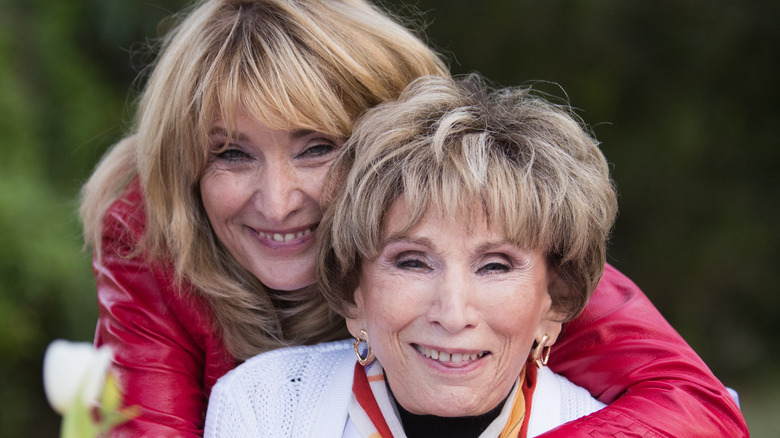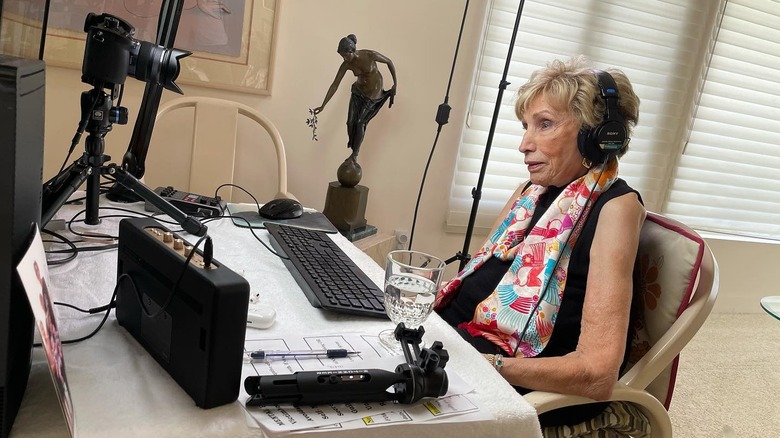Edith Eger has experienced some of the most horrific trauma imaginable. She was a teenager in Hungary during World War II, and her entire family was sent to the infamous Nazi death camp, Auschwitz. Eger survived nearly a year of terror and torture before the camp was liberated, and she only made it out because she hid under a pile of dead bodies, pretending to be dead, until Allied soldiers found her.
When Eger started the work of healing, she realized that she was trapped in what she calls a “mental prison” created by not processing her experiences in Auschwitz. Eger began to break out of her “mental prison” and truly heal only when she started to face her trauma honestly, talk about it, practice forgiveness, and shift her perspective.
Eger went on to get a Doctorate in Psychology and now she helps people all over the world break out of the mental prisons created by traumatic events in their lives. In an exclusive interview with Health Digest, Dr. Eger revealed how she found joy after inexplicable trauma and how others can, too.
The power of choice and perspective

While doing her own trauma recovery work, Dr. Eger learned a few key lessons that changed her perspective on her experience and helped her find freedom. The first was that even in the midst of the most horrible situations, she always had the opportunity to choose how she would respond and act.
“I’ve never stopped choosing love and hope,” Eger said. “For me, the ability to choose, even in the midst of so much suffering and powerlessness, is the true gift that came out of my time in Auschwitz … We all have this capacity to choose. When nothing helpful or nourishing is coming from the outside, that is precisely the moment when we have the possibility to discover who we really are by looking inward. It’s not what happens to us that matters most, it’s what we do with our experiences.”
With lots of therapy and difficult, reflective, inner work, Eger was able to accept that she couldn’t change the past, but she could identify the “gifts” that came out of her traumatic experiences. With that knowledge, Eger made the active decision to choose gratitude and joy about the present instead of staying in the anger, resentment, and fear of her past.
Choosing hope and staying present

Eger’s healing work also showed her the importance of choosing hope for the future and staying present in the joys of the now.
“Freedom is a lifetime practice — a choice we get to make again and again each day,” Eger explained. “Ultimately, freedom requires hope, which I define in two ways: the awareness that suffering, however terrible, is temporary; and the curiosity to discover what happens next. Hope allows us to live in the present instead of the past, with our focus on the future we want for ourselves and our families. In this way, we can unlock the doors of our mental prisons.”
In her new online course, “Unlocking Your Potential,” Eger helps survivors of trauma do the work of unlocking their mental prisons. Throughout ten lesson modules, she guides participants through the process of identifying experiences that are keeping them locked in their mental prisons and limiting beliefs caused by their traumas that are keeping them from being the people they want to be.
“I love that the course gives people the practical, direct experience for reframing their past and unlocking their potential,’ Eger said. “The journey to healing can be long and circuitous, and I want to help people get going or go deeper on that journey, to find the strength, peace, and joy inside themselves”
You can sign up for Dr. Eger’s course here, and for the latest news and resources, please follow Dr. Eger’s Instagram.



